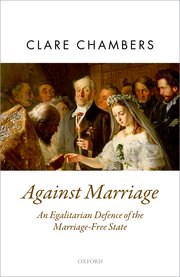Two of the most helpful concepts that I’ve gleaned from Al Wolters’s Creation Regained are creational norms and structure and direction.
Wolters holds that law is built into creation. Creation is not only material things; creation includes non-physical laws like gravity and norms for marriage. Drawing on the wisdom literature Wolters observes that God designed his world to work in particular ways. Wisdom is to observe God’s world to through the lens of God’s Word to discern how best to live in the world God made.
Structure refers to the essence of a thing, and it is rooted in creational laws. Direction refers to the degree to which a creational entity (which, recall, is not limited to the physical world but includes institutions such as marriage) is perverted by the fall or is being brought back to conformity to creational law.
Related to these two concepts is the critique of ideology developed by David Koyzis. Building on Wolters’s structure/direction distinction, and applying it to politics, Koyzis argues that ideologies are idolatrous because they seize on one aspect of the way God made the world (creational norms/structure) and make it ultimate. If only the ideology could take root, the thinking goes, then the nation or community or world could be saved by the evil which threatens it. The “fundamental evil” identified by the various ideologies is itself another aspect of God’s creation (identifying evil with structure not with direction). As a result of deifying one part of the creation and demonizing other parts, ideologies develop warped soteriologies that lead to more evil and suffering because governing moral principles built by God into his world (creational norms/structure) are subverted by the salvific goal set up by the ideology.
—
Here is copy from Oxford University Press, describing Clare Chambers’s new book Against Marriage: An Egalitarian Defence of the Marriage-Free State:
Part I makes the case against marriage. Chambers investigates the critique of marriage that has developed within feminist and liberal theory. Feminists have long argued that marriage is a violation of equality since it is both sexist and heterosexist. Chambers endorses the feminist view and argues, in contrast to recent egalitarian pro-marriage movements, that same-sex marriage is not enough to make marriage equal. Chambers argues that state-recognised marriage is also problematic for liberalism, particularly political liberalism, since it imposes a controversial, hierarchical conception of the family that excludes many adults and children.
Here is the book’s cover:
A colleague of mine, observing that the cover presents marriage in a fallen direction, commented that a common rhetorical approach for rejecting biblical teaching is to use fallen direction as a way to oppose creational structures. In these conversations, therefore, it is important to distinguish between structure and direction.
Further, the copy illustrates the benefit of Koyzis’s analysis of ideologies. The copy indicates that equality and freedom are the governing standards for Chambers. Both equality and freedom have a role in God’s good creation. Indeed, both have a role within marriage. But if equality and freedom become the absolute norms and if heirarchy and limits become the great evils, then Chambers has invented an idol. And since this idolatry does not conform to the way the true God made his world to work, the only result will be greater pain and suffering for living contrary to creational norms.

